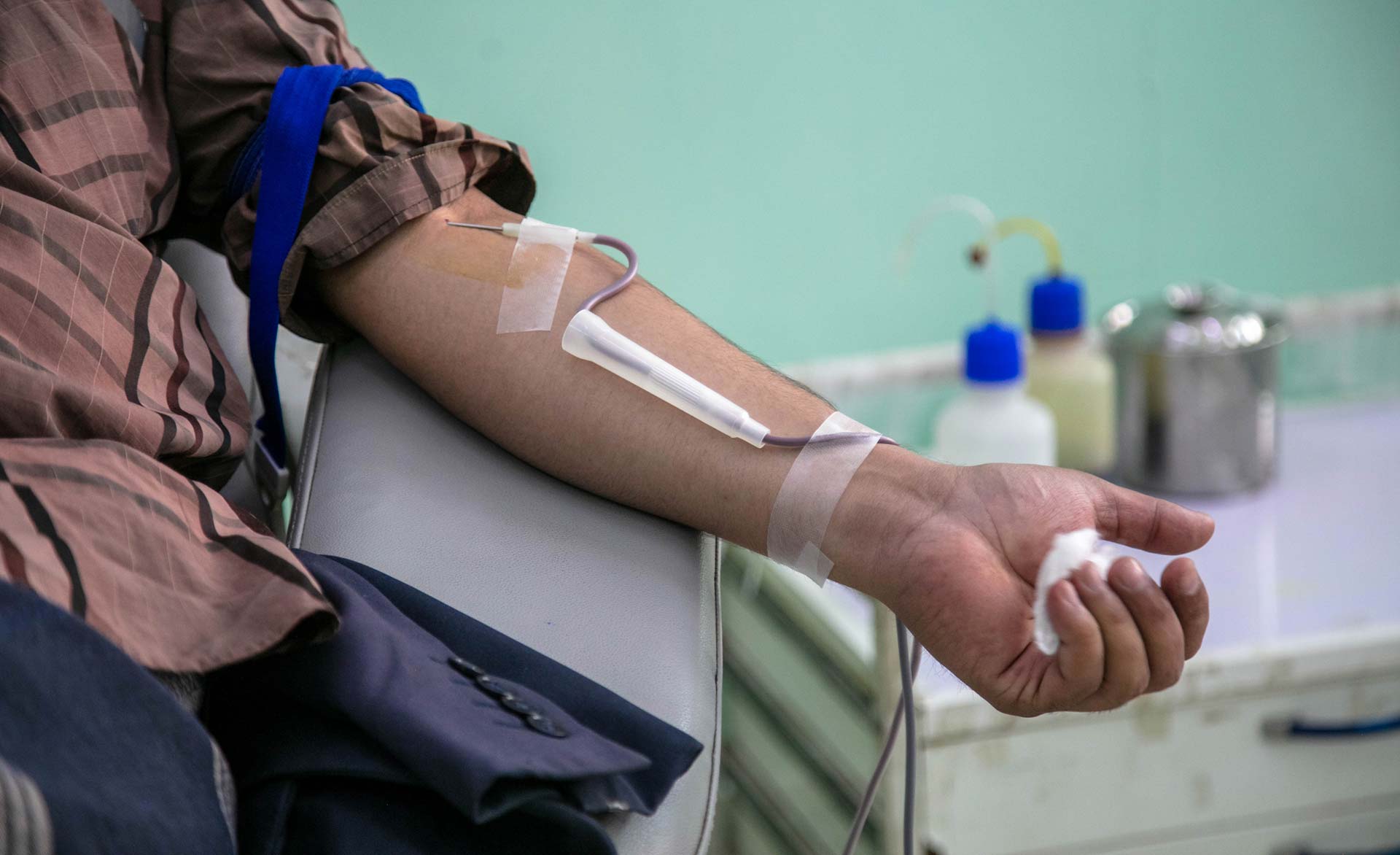
13 October 2025 – Some countries in the Eastern Mediterranean Region continue to face major challenges in ensuring the availability, safety, quality, accessibility, affordability and clinical efficacy of blood and blood products.
The WHO Regional Office for the Eastern Mediterranean has been actively engaged in improving national blood systems, strengthening the provision of safe blood and blood products in both regular and emergency settings in line with the Regional strategic framework for blood safety and availability 2016–2025.
In collaboration with partners and Member States, the Regional Office has supported priority countries as they integrate national blood regimes into their health systems. Webinars have been organized and an advisory group on blood regulation, availability and safety was established.
Egypt, the Islamic Republic of Iran, Iraq, Kuwait, Pakistan, the Syrian Arab Republic and Tunisia are among the countries that have established national blood transfusion authorities. Morocco established a national blood agency in early 2025.
In May 2024, a WHO workshop in Oman focused on implementing the considerations in developing regulatory frameworks for human cells, tissues and advanced therapy medicinal products and attracted participants from 9 countries from the region, with the aim to build country level capacity.
The Regional Office works closely with collaborating centres in the Islamic Republic of Iran and Tunisia and with international organizations to strengthen the provision of safe blood and blood products.
These ongoing efforts are crucial, especially during humanitarian emergencies, a major concern in the Region.
Through 2024 to 2025, WHO provided technical support to the occupied Palestinian territory, Sudan and Somalia to help ensure the availability and safety of blood transfusion supplies. WHO is also focused on efforts to promote the appropriate clinical use of blood and establish hospital transfusion committees to improve governance and build quality management systems for blood supply and transfusion. Tunisia has initiated the 5S Kaizen-Total Quality Management approach to efficiently enhance quality and safety of blood transfusion.
Despite advances, much remains to be done. Countries play a crucial role in implementing and/or strengthening their regulatory systems, promoting voluntary non-remunerated blood donation through public education campaigns and community mobilization, ensuring effective blood donor management, investing in blood bank infrastructure, including proper storage and training for rigorous screening of blood, and implementing digital tracking systems to monitor blood inventory and distribution.
It is essential to strengthen human and financial resources at WHO to ensure its ability to provide sustained and coordinated technical support for countries.
A report on blood safety is among the reports submitted for discussion during the Seventy-second session of the Regional Committee.








